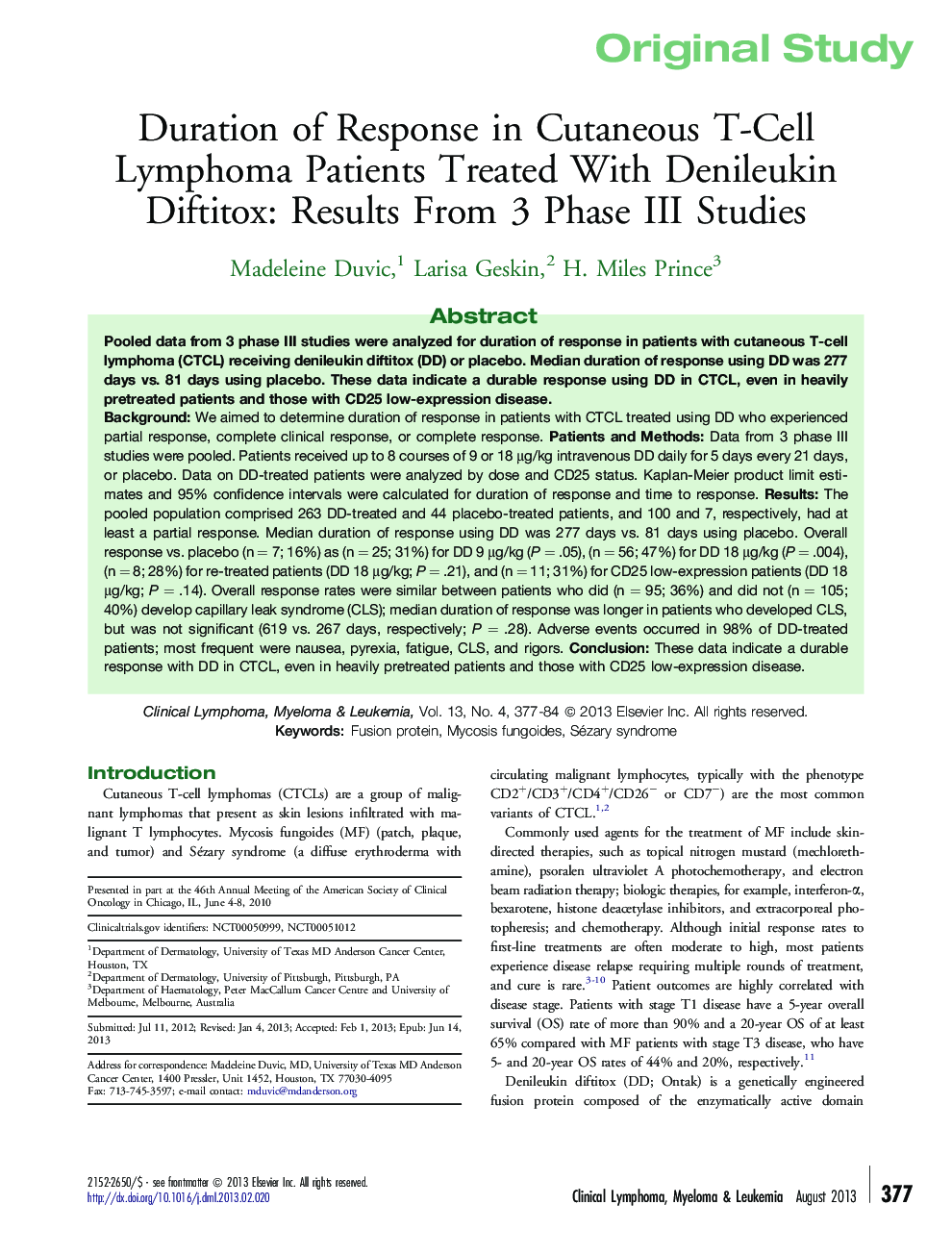| Article ID | Journal | Published Year | Pages | File Type |
|---|---|---|---|---|
| 2754982 | Clinical Lymphoma Myeloma and Leukemia | 2013 | 8 Pages |
BackgroundWe aimed to determine duration of response in patients with CTCL treated using DD who experienced partial response, complete clinical response, or complete response.Patients and MethodsData from 3 phase III studies were pooled. Patients received up to 8 courses of 9 or 18 μg/kg intravenous DD daily for 5 days every 21 days, or placebo. Data on DD-treated patients were analyzed by dose and CD25 status. Kaplan-Meier product limit estimates and 95% confidence intervals were calculated for duration of response and time to response.ResultsThe pooled population comprised 263 DD-treated and 44 placebo-treated patients, and 100 and 7, respectively, had at least a partial response. Median duration of response using DD was 277 days vs. 81 days using placebo. Overall response vs. placebo (n = 7; 16%) as (n = 25; 31%) for DD 9 μg/kg (P = .05), (n = 56; 47%) for DD 18 μg/kg (P = .004), (n = 8; 28%) for re-treated patients (DD 18 μg/kg; P = .21), and (n = 11; 31%) for CD25 low-expression patients (DD 18 μg/kg; P = .14). Overall response rates were similar between patients who did (n = 95; 36%) and did not (n = 105; 40%) develop capillary leak syndrome (CLS); median duration of response was longer in patients who developed CLS, but was not significant (619 vs. 267 days, respectively; P = .28). Adverse events occurred in 98% of DD-treated patients; most frequent were nausea, pyrexia, fatigue, CLS, and rigors.ConclusionThese data indicate a durable response with DD in CTCL, even in heavily pretreated patients and those with CD25 low-expression disease.
